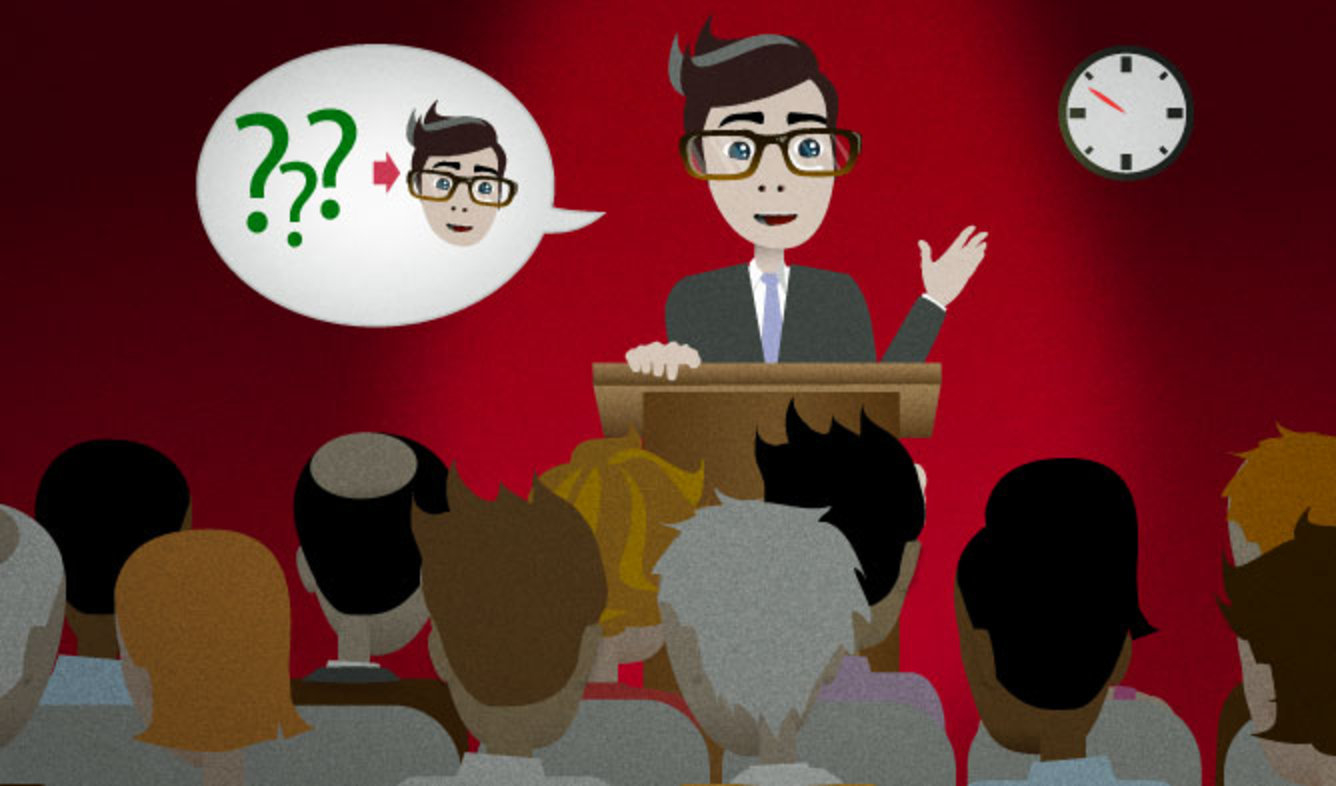“We have a few more minutes, so I'd be happy to take some questions from the audience.”
You're giving a talk at a conference. You've finished your presentation, and now you want the people in the audience to ask you questions.
We have a few more minutes, so I'd be happy to take some questions from the audience.
Want Video and Sound? Follow us on YouTube

a few (of something)
"A few" is a number that's not specific, but it usually means somewhere between 3-10. It's a little less formal than "several" and also sounds like a slightly lower number. Here are some examples:
You may want to consider hiring a personal trainer for a few sessions.
That's a very generous offer. Um, let me think it over for a few days and get back to you.
(someone) has (some time)
"We have some time" means that there's more time to do something. For example:
We should get going soon, don't you think? We don't want to be late.
No, it's OK. We have some time.
I'd be happy to (do something)
Use this phrase to politely offer to do something.
For example, you can say this to someone who's visiting your company from another country:
I'd be happy to show you around, if you'd like.
You can also offer to do something with "I'll be happy to ___". This version is more appropriate after "if":
If this one doesn't work for you, I'll be happy to bring you a new one.
These phrases are polite, so you can use them with people you don't know very well.
take questions (from an audience)
When someone gives a speech or presentation, they often "take questions from the audience". This means that they allow people in the audience to ask questions.
You can use this phrase like this:
I'll take questions at the end.
Each talk is about 20 minutes long, after which the presenters will be able to take questions from the audience.
